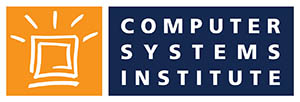By Mansur Islamov; Skokie, Illinois
For many international students from Central Asia, studying in the USA takes a longer journey and more effort than students from other countries. Many youths from Central Asia make their first stop in Turkey or Russia to gain professional experience and work hard to save money for their future study in the USA.
I recently sat down with Zakir Bekenov, a CSI alumni from Turkmenistan, to learn his prospective on international students from Central Asia achieving academic and career success in the United States. Mr. Bekenov grew up in the north part of Turkmenistan in a traditional family. He grew up speaking three different languages and eventually learned three more. After completing high school, Mr. Bekenov went to Istanbul to further his education. He earned his bachelor’s degree in Economics. Then he started to work for one of the largest media groups in Turkey. After working there for two years, Mr. Bekenov decided to come to US to continue his education. He arrived in the US in 2014 and studied ESL and Small Business Administrator programs in Computer Systems Institute. After studying at CSI for more than a year, Mr. Benkenov was admitted into the Masters in Business Administration program with concentration in Investment and Operations Strategies at Northeastern Illinois University.
Below is a selection of my conversation with Mr. Bekenov:
Islamov: What made you decide to study in the USA?
Bekenov: Coming to US was my dream during my university years, I could not afford to come for the Work and Travel program when I was back in Central Asia, so once I have saved enough money after a couple of years, I started researching my options to come to US, I considered several alternatives, then finally I decided to come to Chicago through Computer Systems Institute’s program.
Islamov: How did you choose your field of study?
Bekenov: I got my bachelor degree in Economics, then I decided to pursue my MBA. I thought MBA fits my qualifications well and I was right in choosing this program. I learned business more broadly, especially in operations and productions management together with finance.
Islamov: How did your education and work experience prepare you for this position?
Bekenov: I have always loved math and have good quantitative skills since my high school years in Central Asia, my educational background was more than enough for an MBA degree. Moreover, studying at CSI’s Small Business Administrator program was a good experience for me.
Islamov: Is it hard to study in the USA, generally for international students?
Bekenov: From educational perspective it was not hard for me, the hardest part was to finance my education. After completing my first semester at NEIU, I was hired on-campus as a Graduate Teaching Assistant, so it made easier for me to afford my school expenses.
Islamov: What obstacles did you encounter?
Bekenov: I did not have obstacles, I had difficulties. I believe if a person is ambitious enough to succeed, then he can accomplish his goals.
Islamov: What do you do in your spare time?
Bekenov: I am learning programming languages like Python and R Statistical programming.
Islamov: What are your short-term goals and long-term goals?
Bekenov: In the coming couple of months, I want to find a good fitting job in Chicago and start my application to switch my visa from F1 to H1B. In the long term, I want to be working for consulting firms and improve myself in the area of product management, operations management and hedge funds. If I will have time, I will consider another master’s degree in data science.
Islamov: What do you see yourself doing five years from now?
Bekenov: As an associate partner at one of the big consulting firms.
Islamov: What accomplishments are you most proud of?
Bekenov: Having completed my MBA degree in one of the AACSB accredited schools as an honor student.
Islamov: What previous work experience has been the most valuable to you and why?
Bekenov: The one I worked as a data analyst at Feza Media Group. I learned a lot. Especially in the area of data analytics, thanks to the externship experience I gained through CSI’s program.







